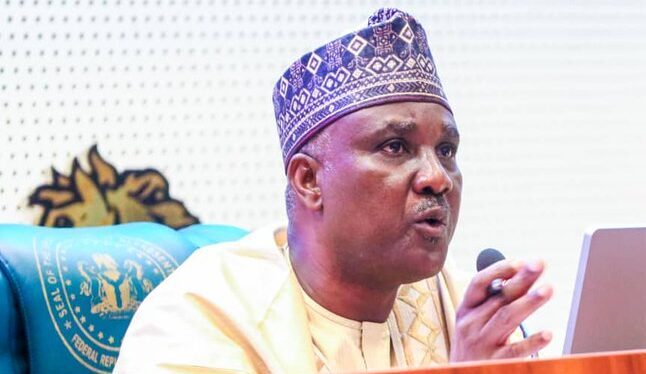BREAKING: Nguroje Backs Abbas On Traditional Rulers’ Empowerment

Former deputy speaker of the House of Representatives, Hon Babangida Nguroje has commended the initiative of Speaker Tajudeen Abbas to ensure that traditional institutions and rulers are provided with the necessary tools that will enhance the discharge of their duties.
Nguroje made this commendation on the heels of the distribution of vehicles to some traditional rulers by the speaker of the House of Representatives, Hon Tajudeen Abbas.
He stated that the speaker’s desire to institutionalise the gesture, through the 2026 budget, and ensure its sustainability by subsequent Assemblies indicates recognition of the critical roles of traditional rulers as custodians of culture, norms, and traditions.
He expressed confidence that one way to support the traditional rulers, as expressed by Speaker Abbas, was to create an enabling environment for the institutions to function in a decent and conducive atmosphere across all the geopolitical zones.
Speaker Abba said the gesture was just the beginning of many more incentives that he intends to facilitate. He stressed that the House of Representatives, under his leadership, will make the same provisions in the 2026 budget, which will be distributed across the six geopolitical zones.
According to Nguroje, the steps taken by the speaker are a signal to the eventually realisation of the much needed constitutional role for the traditional rulers which is being considered by the current National Assembly.
He said as an institution that upholds traditional norms and preserves culture at all times , the role of the traditional rulers in fostering peace, unity and progress cannot be overemphasized.
He canvassed more support for the traditional rulers, explaining that the task of instilling discipline and curbing societal vices rests substantially with them and that any attempt to provide them with the necessarily tools and atmosphere under which to operate must be commended and supported by all and sundry.
Nguroje said further that the traditional institutions in Nigeria have a long history, playing crucial roles in governance and community life since before colonialism and must be sustained.
